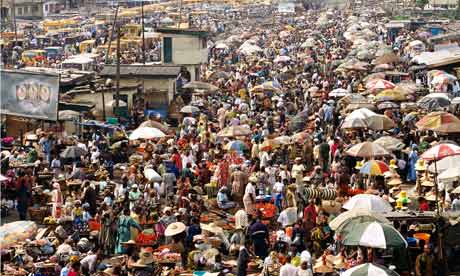Artificial meat? Food for thought by 2050
Posted by Big Gav in artificial meat, prot
The Guardian has a look at the need to produce artificial meat as the world's population heads over 9 billion people - Artificial meat? Food for thought by 2050.
Artificial meat grown in vats may be needed if the 9 billion people expected to be alive in 2050 are to be adequately fed without destroying the earth, some of the world's leading scientists report today.
But a major academic assessment of future global food supplies, led by John Beddington, the UK government chief scientist, suggests that even with new technologies such as genetic modification and nanotechnology, hundreds of millions of people may still go hungry owing to a combination of climate change, water shortages and increasing food consumption.
In a set of 21 papers published by the Royal Society, the scientists from many disciplines and countries say that little more land is available for food production, but add that the challenge of increasing global food supplies by as much as 70% in the next 40 years is not insurmountable.
Although more than one in seven people do not have enough protein and energy in their diet today, many of the papers are optimistic.
A team of scientists at Rothamsted, the UK's largest agricultural research centre, suggests that extra carbon dioxide in the air from global warming, along with better fertilisers and chemicals to protect arable crops, could hugely increase yields and reduce water consumption.
"Plant breeders will probably be able to increase yields considerably in the CO2 enriched environments of the future … There is a large gap between achievable yields and those delivered ... but if this is closed then there is good prospect that crop production will increase by about 50% or more by 2050 without extra land", says the paper by Dr Keith Jaggard et al.
Several studies suggest farmers will be up against environmental limits by 2050, as industry and consumers compete for water. One group of US scientists suggests that feeding the 3 billion extra people could require twice as much water by then. This, says Professor Kenneth Strzepek of the University of Colorado, could mean an 18% reduction in worldwide water availability for food growing by 2050.
"The combined effect of these increasing demands can be dramatic in key hotspots [like] northern Africa, India, China and parts of Europe and the western US," he says.
Many low-tech ways are considered to effectively increase yields, such as reducing the 30-40% food waste that occurs both in rich and poor countries. If developing countries had better storage facilities and supermarkets and consumers in rich countries bought only what they needed, there would be far more food available.
But novel ways to increase food production will also be needed, say the scientists. Conventional animal breeding should be able to meet much of the anticipated doubling of demand for dairy and meat products in Asia and sub-Saharan Africa, but this may not be enough.
Instead, says Dr Philip Thornton, a scientist with the International Livestock Research Institute in Nairobi, two "wild cards" could transform global meat and milk production. "One is artificial meat, which is made in a giant vat, and the other is nanotechnology, which is expected to become more important as a vehicle for delivering medication to livestock."






